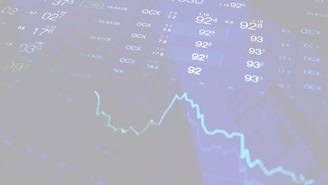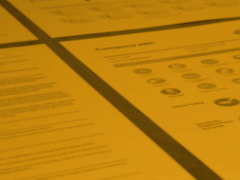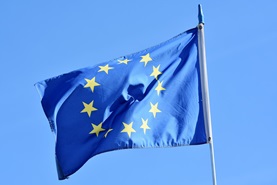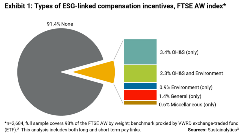Coronavirus: Flattening the Misinformation Curve
In February 2020, the WHO Director-General Tedros Ghebreyesus said misinformation about COVID-19 is just as dangerous as the virus itself. “We are not just fighting an epidemic; we are fighting an ‘infodemic.’ Fake news spreads faster and more easily than the virus and is just as dangerous.”[i]
EU Sustainable Finance Action Plan: Final Taxonomy Report Published and Other Developments
The highly anticipated final report by the TEG (Technical Expert Group) on the EU Taxonomy was published in early March, followed by a stakeholder information session. You can read our blog post on last fall’s developments here.
Coal Investments: Up in Smoke?
Growing public concern over climate change is pushing investors to increasingly assess how their portfolios are pivoting to a low carbon economy. Because of its large carbon footprint, the coal industry is a prime target of environmental activism and divestment campaigns, and it is becoming the investable hot potato few want to hold.
German Corporate Governance Standards Overhauled
The legal and regulatory foundations of Germany’s corporate governance system are being overhauled in the form of far-reaching changes to the German Stock Corporations Act (AktG) and the German Corporate Governance Code (Kodex). As a result, institutional investors should expect enhanced transparency from German issuers, as well as stronger rights enabling them to effectively exercise their stewardship responsibilities. The reform reflects both the transposition of the EU Shareholder Rights Directive II (SRD II) into domestic law and a corresponding Kodex revamp, both aiming to incorporate governance features that are more typically associated with Anglophone jurisdictions.
The ESG Risk Ratings: Potential Applications for Investors
With our third ESG Risk Ratings white paper, we explore how investors could potentially apply the ESG Risk Ratings to their investment processes. Below are some key takeaways from the white paper. To learn more, register for our regional webinar using the buttons at the bottom of the page.
The ESG Risk Ratings: Exploring the Internet Software and Services Subindustry
In the second installment of our ESG Risk Ratings white paper series, we assess the unmanaged ESG risk of 42 Internet Software and Services (ISS) companies. In addition, the report offers a comprehensive ESG risk analysis of the subindustry and concludes with a case study of Facebook.
10 for 2019: Systemic Risks Loom Large
In 10 for 2019: Systemic Risks Loom Large, we offer a forward-looking view of significant ESG issues that could affect global investment portfolios in 2019. Applying Sustainalytics’ ESG Risk Ratings framework, we identify a selection of subindustries with high levels of unmanaged risk and profile 10 firms with leading ESG management practices and low levels of unmanaged ESG risk.
EU Action Plan Guidance Document
The proposed Taxonomy is a classification tool to help investors and companies make informed investment decisions on environmentally friendly economic activities. It is a list of economic activities, which defines performance criteria for six environmental objectives.
10 for 2020: Creating Impact Through Thematic Investing
The UN Sustainable Development Goals (SDGs) are playing an increasingly important role in shaping the sustainability roadmaps of investors, governments and civil society groups. In Sustainalytics’ thematic research report, 10 for 2020: Creating Impact Through Thematic Investing, we present investors with ten ESG investment themes that can positively contribute to advancing the SDGs.
The State of Pay: Executive Remuneration & ESG Metrics
With investors increasingly incorporating ESG considerations into their investment decisions, many are looking into how corporate leadership may be incentivized to pursue an ESG agenda. This report offers insights to global equity investors considering pay-links as a topic for corporate engagement.
Investor Guidance on Integrating Children’s Rights into Investment Decision Making
Sustainalytics in collaboration with UNICEF, The United Nations Children’s Fund, has published a new report titled, Investor Guidance on Integrating Children’s Rights into Investment Decision-Making. The guidance offers investors a practical toolkit on how to incorporate children’s rights into investment analysis and engagement activities.






















